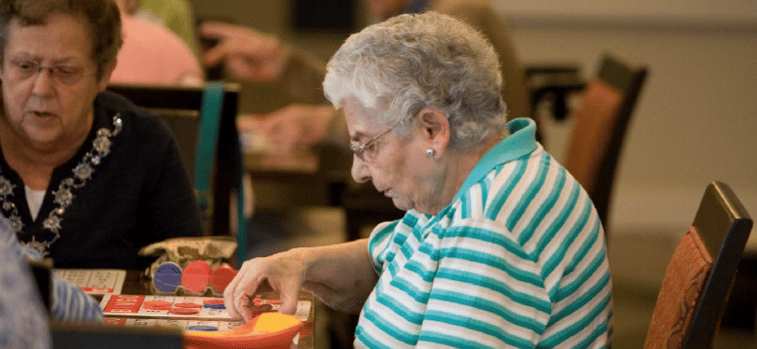
What You'll Learn

According to the National Alliance on Mental Illness, more than 6.5 million seniors in 2009 suffered from depression. The statistic may be eight years old but remains startling today because many people still don’t see clinical depression as a problem for aging parents.
More distressing is that depression in seniors is often undiagnosed. An angry senior might be seen as cranky. Appetite loss may be seen as a byproduct of growing older. Worrying about death might be perceived as natural because seniors are closer to the end of their lives. Sadness about being old is natural because we all wish to be younger.
Indeed, some signs of depression also are personality traits or the physical effects of aging. Because of that, depression diagnoses are never made but, rather, are chalked up to someone growing old. This is unfortunate because depression in seniors is prevalent, goes unrecognized and untreated, and can have serious consequences. Depression is not a normal result of aging, so knowing the warning signs is important if your parent starts displaying symptoms.
Why Seniors Become Depressed
Aging in and of itself is not why seniors become clinically depressed; your parents may be bummed out that the years have flown by, but that’s something just about everyone deals with. And again, just about every senior can experience mood swings and physical changes. However, when those symptoms last beyond a couple weeks, you and caregivers should be concerned.
So why are seniors prone to depression? Physiologically, senior brains may not receive the levels of neurotransmitter chemicals (such as serotonin) that they once did, and research has suggested a link between dementia and depression. Chronic pain is taxing on seniors, and some medical conditions, such as heart disease and cancer, can increase the risk of depression. Also, some seniors may be genetically predisposed to depression.
Psychologically, seniors may experience more traumatic life events, such as a loved one dying, feelings of isolation, retirement, or dealing with other chronic health conditions. These factors, combined with physical changes, can lead to depression in aging parents.
A Cause for Concern
Depression is classified as a medical problem because it can have profound effects on a patient’s health. In seniors, these effects are even more severe. Depression may amplify the aches and pains from other conditions, and recovery can take longer (if it occurs at all). The risk of heart attack also increases with depression.
More alarmingly, the senior rate of suicide is high—it’s the third-leading cause of death by injury for the age group and is higher with men, especially men who are widowed or divorced or over 85. Aging parents with depression are not simply sad; their health legitimately is in danger.
The Warning Signs
Seniors may experience some of these warning signs independent of clinical depression, but when the symptoms last longer than they should, or the senior in question is suffering from multiple symptoms, you may want to seek help for your aging parent. Here are eight key indicators that a senior is experiencing depression:
- Insomnia: Seniors who aren’t falling asleep or who are waking up too early (or both) on a consistent basis may be dealing with depression. We’ve all had nights when our thoughts and worries kept us awake; when this is chronic, it’s insomnia and, with seniors, possibly a sign of something more serious.
- Irritability: Aging parents are allowed to be cranky, but if the irritability is constant and out of character for the senior, it may be a sign of depression.
- Fatigue: Insomnia may cause fatigue, but many depressed seniors get enough sleep yet still feel tired throughout the day.
- Social withdrawal: Active, engaged seniors generally do not withdraw from friends and family for an extended period of time unless something else, possibly depression, is affecting them.
- Anxiety: Depressed seniors may feel unusually anxious and never quite calm themselves down. This can lead to other depression warning signs, including insomnia, fatigue, and social withdrawal.
- Appetite changes: A loss of appetite is a sign of depression in seniors. They skip meals (possibly because they have withdrawn from their friends) or simply have no will to eat. Persistent overeating and weight gain may also suggest depression as well.
- Worsened pain: Seniors battling depression may feel more pains—possibly worsened states of current conditions such as arthritis but also possibly new, unexplained pain caused by the depression.
- Preoccupation with death: Thinking about dying is common among depression sufferers, but it can become self-fulfilling in seniors, who could see their health decline because of the condition.
How Care and Community Help
Depression in aging parents cannot be overlooked. Seniors who are experiencing some of these warning signs should be treated; you simply can’t hope the problem goes away. Moreover, the problem may be compounded for seniors living on their own—their adult children may not interact with them enough to realize there is a problem.
Fortunately, for people in quality senior living communities, the signs of depression do not go unnoticed. Experienced caregivers are trained to recognize symptoms and alert physicians and families if they suspect depression. A community as a whole can be a big help: Residents may recognize if something is not right with a dear friend. Depression in seniors can be frightening, but by watching for the warning signs and taking action, families can get aging parents the help they need.


